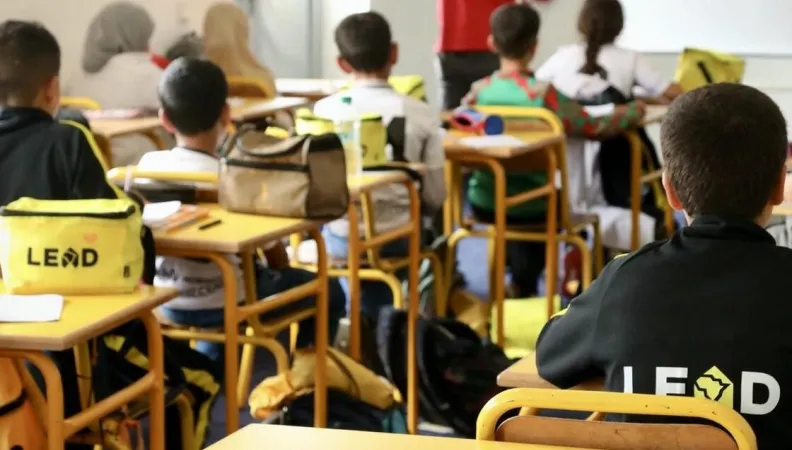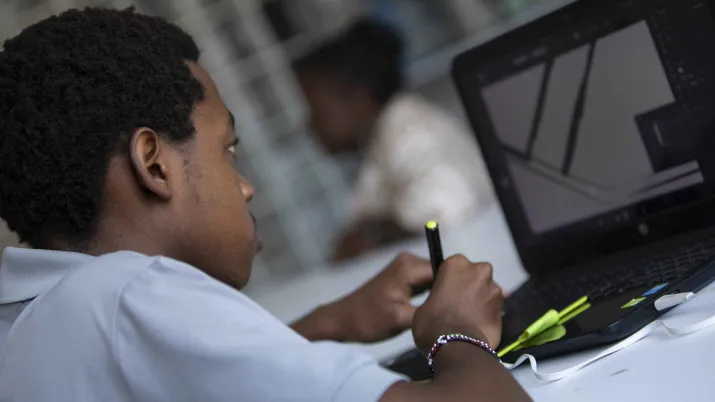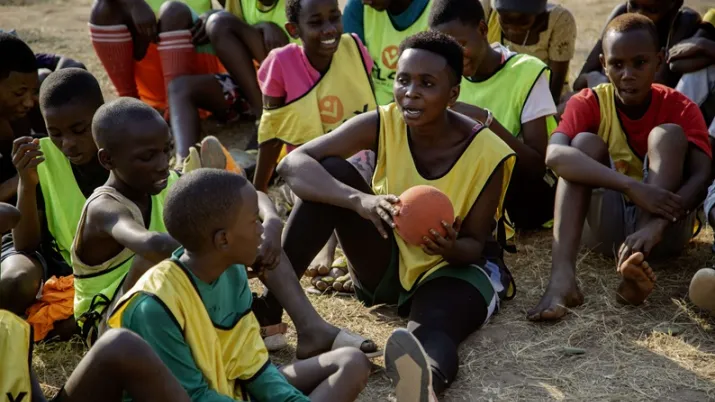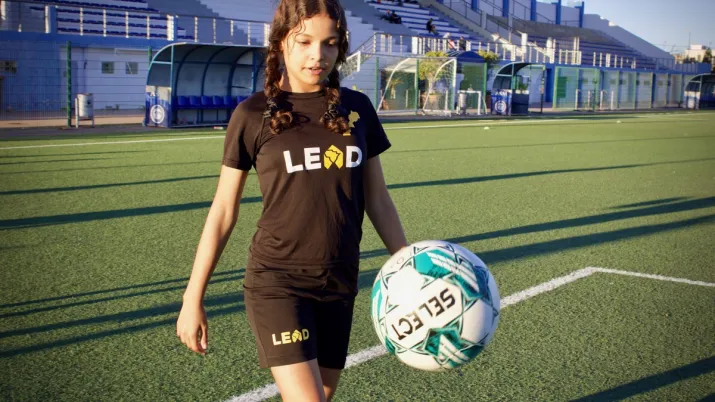Share the page
LEAD Morocco: sport and education for all children
Published on

In Morocco, where more than 180,000 children live in extreme poverty, there is ongoing inequality in access to education. We met Soufiane Najah El Idrissi and Fatima Azzahra Benfares, the founders of LEAD Morocco, an academy helping young people in the Casablanca region not only go to school, but also to improve their sports skills.
LEAD Morocco
Combining education and sport, the LEAD Morocco academy—set up by Soufiane Najah El Idrissi and Fatima Azzahra Benfares—trains children from disadvantaged backgrounds in El Mansouria, just a few kilometers from Casablanca.
A school like no other
“In the morning, the student athletes have their normal lessons in Moroccan state schools. Then they have lunch at the academy and in the afternoon they have lessons here,” says Soufiane Najah El Idrissi, Executive Director.
“The adventure started in 2019 when I met William Smith, who manages LEAD Africa and had launched the project in Liberia in 2015,” recounts Soufiane. William invited him to collaborate on an education project to create engineering games accessible to children. Soufiane was thrilled with the idea. “He then contacted me to help him launch the academy in Morocco,” says Fatima Azzahra. “I’ve been part of this adventure for 5 years and there are now 18 of us running the academy!” On paper, they have very different profiles, but they all share the same passion for social development.
Further reading: Meriam El Mahiri: “Social and sports entrepreneurship could be for you!”
Improving parity and inclusion
The training is all free and specifically for children from disadvantaged backgrounds, who are given aptitude tests. “We don’t judge the children on what they’ve learned elsewhere, but on their capacity to learn,” says Fatima Azzahra. “Their ability to fit in with a group is just as important as everything else.”
LEAD Morocco also makes every effort to achieve gender parity. It’s now a mixed academy with the highest ratio of girls in Morocco, at 43%. But the objective of 50/50 is not always easy to achieve, as gender stereotypes persist, especially in football. “At the beginning, the girls were coming to us, begging us to convince their parents to let them do the test,” says Fatima Azzahra. “But today, we’re so pleased hearing our coaches talking to a mixture of both girls and boys, and in an equal way. The girls acquire the same skills as the boys, and they have a thousand times more self-confidence than I had at their age. It makes me very proud.”
When the program was launched in November 2022, LEAD Morocco was one of the four pilot projects selected and subsequently supported for their commitment to young people from diverse backgrounds. This program for African sports academies is implemented by the NGO Play International and financed by AFD.
LEAD Morocco now has five classes, each with around 20 student athletes. A total of 123 children follow the academy’s curriculum. “The first cohort is now in secondary school and we intend to support them up to their high school diploma,” says Fatima Azzahra.
Further reading: ISONGA: the AFD program at the heart of Rwanda’s youth sports future
Creating a generation of leaders in all fields
In the academy’s classes, 90% of the students come from nearby slums. “We chose football to begin with because it’s the most popular sport in the world: it’s accessible, everyone follows it, and every child has their football idol,” says Soufiane. The objective is to use this common culture to convey the fundamental values needed to succeed in a highly competitive world. “Work and effort, leadership and team spirit,” he explains.
Fatima Azzahra and Soufiane hope that these young Moroccans will be able to get university scholarships abroad through football. “So far, we have partnerships with four American universities who are willing to host children as of their final year of high school, so that they can have athletic-academic scholarships in the United States. We want them to have the best courses and the best possible opportunities. Our objective is that one day they will have access to decision-making positions, so that they can in turn change the lives of their communities,” says Fatima Azzahra.
The founders of LEAD Morocco hope to extend the project with the financing received from the Academies Program: “We want to create a hub for innovation through sport. The idea is to develop programs for young Moroccans and use sport for development in many fields: education, the gender perspective, employability, the climate, and entrepreneurship.”



